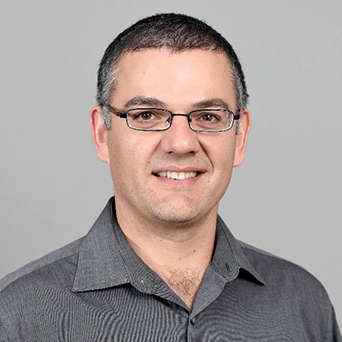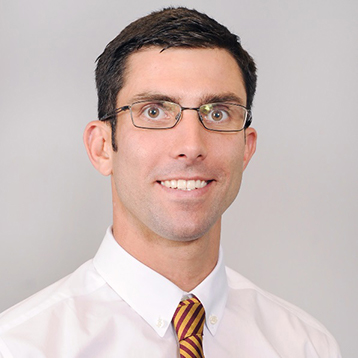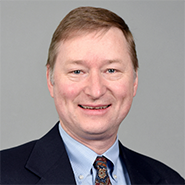Matei Georgescu
Associate Professor, ASU School of Geographical Sciences & Urban Planning, and Associate Director of Research Graduate Programs
Dr. Georgescu is a professor in the School of Geographical Sciences and Urban Planning (SGSUP), and Associate Director of Research Graduate Programs in SGSUP. Dr. Georgescu obtained his PHD in Atmospheric Science from Rutgers University. His research aims to improve understanding and characterization of distinct phenomena related to urbanization-induced landscape change. The range of tools used to investigate these topics include climate models, remote sensing data and associated applications, and in situ weather/climate observations. His current research includes work on enhancing preparedness for critical infrastructure failure during extreme heat evens, funded by the National Science Foundation, and a project working towards improved predictive climate modeling, funded by the US Department of Agriculture.
David Hondula
Assistant Professor, ASU School of Geographical Sciences & Urban Planning
Dr. Hondula is an Assistant Professor with the School of Geographical Sciences and Urban Planning at Arizona State University. Dr. Hondula obtained his PhD in Environmental Sciences from the University of Virginia. His research involves measuring and modeling personal heat exposure to help guide strategies that reduce risk of heat-related illness and death. Dr. Hondula is ASU's lead contributor to the US Center for Disease Control's Climate-Ready Cities and States Initiative, in collaboration with the Arizona Department of Health Services.
David Sailor
Professor, ASU School of Geographical Sciences & Urban Planning, and Director, ASU Urban Climate Research Center
Dr. Sailor is a professor in the School of Geographical Sciences and Urban Planning, and Director of the Urban Climate Research Center. Prior to joining ASU, Dr. Sailor was on the faculties of Tulane University) and Portland State University. At Portland State, he was founding director of the Green Building Research Laboratory at Portland State. He received his Ph.D. from the University of California, Berkeley, where he conducted research in collaboration with the Energy and Environment Division at Lawrence Berkeley National Laboratory. Dr. Sailor's research focuses on the intersection of climate with the built environment. This includes investigation of feedback mechanisms between the built environment and climate with a focus on building energy consumption and renewable energy resources as well as both indoor and outdoor thermal comfort and air quality. His current research projects funded by the National Science Foundation and the U.S. Environmental Protection Agency are exploring potential for mitigating indoor and outdoor thermal environment and air quality with an emphasis on vulnerable elderly populations.




